A TYA radio play-turned-musical opens this weekend at the Kennedy Center, with accessibility and community at the forefront.
By Alexandra Pierson for AMERICAN THEATRE
When, during the COVID-19 lockdown, Tim J. Lord was commissioned by the Kennedy Center to write a radio play for young audiences based on the theme of “uncommon heroes,” he drew inspiration from his Midwestern roots and teenage memories of the Great Flood of 1993. The resulting play, Through the Sunken Lands, was a modern-day epistolary tale set in the aftermath of a devastating flood that has decimated a small town on the banks of the Mississippi and left Artemis, a teenaged wheelchair user with cerebral palsy, stranded in the local library. She survives—and fights off the plans of a team of developers to erase the town’s history—with the help of a talking heron, a bighead carp, and her Aunt Maggie across the water.
Now, Lord’s radio play has taken on three dimensions and added songs. An in-person musical version, with a score by Avi Amon and direction by Cara Phipps, plays at the Kennedy Center March 2-17.
The creative team partnered with DPD Casting to recruit actors who are wheelchair users to perform (Meredith Aleigha Wells) and understudy (Molly Nilsen) the role of Artemis, and set designer Andrew Cohen has created a set that the actors can move through freely. Thus, in both form and content, Through the Sunken Lands models the path for a new normal where everyone’s access needs are minded and met. American Theatre spoke with the playwright, composer, and director over Zoom last fall, while the musical was still in development.

ALEXANDRA PIERSON: Where did these characters and this story come from?
TIM J. LORD: It was originally commissioned by the Kennedy Center’s Theater for Young Audiences. Their pivot during Covid was to commission writers to do these short radio plays for young audiences. I don’t remember what the exact prompt was, but it was basically uncommon heroes or superheroes you haven’t seen before.
I’m originally from the Midwest. I’m from St. Louis originally and grew up along the Mississippi River. A lot of my plays are set in the Midwest, so I just sort of figured I should run with that—why fight it now? Artemis is a character who’s been coming into my brain in a lot of different ways recently. I had this image of this young girl who’s a wheelchair user and goes on some kind of journey, so I thought this seemed like a good time to explore that.
It began with her and this idea of a flood. I experienced the 1993 flooding of the Missouri and Mississippi Rivers when I was a teenager and that sort of stuck in my imagination. As soon as I knew I was writing a play for young audiences, I was like, there has to be a talking animal, because I don’t get to do that all the time and it’s a lot of fun to play with. I’ve had this thing for herons in the last five years, because they’re just really cool birds. So Nicodemus as a great blue heron was sort of an obvious way to go.

After its initial incarnation, how did you adapt it into a musical for the stage?
LORD: This all began with the radio play, obviously, but then I came back and pitched it to the Kennedy Center and said, “I really love the world that I’ve created here and these characters, and I feel like there’s more to explore. I have an idea for how we can take it from just purely an audio experience into live action…and maybe it’s a musical.” And basically, they said, “Yeah, that sounds great. Do you have any composers in mind?” I thought about it, and I was like, “There’s this guy Avi Amon who’s amazing.” We’ve worked together a few times on individual songs here and there. So I reached out to Avi and he said that he was game.
Avi and Cara, what made you say yes to this project?
AVI AMON: Honestly, just because of the relationship Tim and I had from the 52nd Street Project, it was an easy yes. We have, thankfully, a very smooth collaborative shorthand. It could have been a really bad show and I probably would have said yes, but thankfully, it’s not. I think there’s an immense amount of trust in the way that Tim writes and in the space that he leaves open for other people to kind of do their thing. It’s never just a blank check to go off and do you, but there is space for you to do you, and most likely, it’s gonna be in the ballpark.
CARA PHIPPS: Frankly, when I got the email about it, I thought it was a joke. I thought it was spam. I opened it up and I was getting ready to toss it, and then I looked and I saw the Kennedy Center, and I was like, wait a minute. Then I saw Tim’s name and I texted him immediately. Similar to Avi, I was like, “Is this for real?” He’s like, “This is for real.”
Tim and I met back in the beginning of 2018 when he was a Jerome Fellow at the Playwrights’ Center. When we were both in the Twin Cities, we’d go out for beers, and I’d lament about my life in the theatre, like, “I’m just gonna quit and get a corporate job.” And Tim would be like, “Nope, you’re not allowed to, at least not until we get to work together.” Now it’s all come to fruition, here we are, and I’m grateful to be a part of this process.
Can you tell me about your songwriting process?
LORD: We had a few meetings over Zoom, but I think all of our songwriting has really been in person. For the first song or two, I wrote some lyrics and sent them to Avi and he came back with a few musical sketches. But our most productive songwriting has been in person and that for me has been a really inspiring and exciting way to work.
AMON: Every writer says that there’s nothing like being in a room together. You can’t fake that kind of synchronicity and collaborative energy. During these moments when we can be together, stuff blossoms in ways that I could never have imagined. You don’t get a breakthrough on your own in your apartment. You get a breakthrough when you’re in a room wrestling with something, while you’ve taken your shoes off and are walking around and the other person is doing something else. And you’re like, “Wait, that’s it!”

How would you describe the musical’s sound?
AMON: The sound is rooted in Americana. We’re trying to draw inspiration from direct sources as opposed to musical theatre references of those sources. So I’m listening to a lot of American roots music here, a lot of rock music, and a lot of pop as well. One thing that I know is that there’s going to be guitar.
The radio play deals with some heavy political topics: climate change, bureaucracy, gentrification. How do you make those themes accessible for young audiences?
LORD: All of my plays are really political, and actually, the plays that I write for young audiences are probably the most political. I met Avi working at the 52nd Street Project in New York City. We first worked together writing these short plays that kids would act in with an adult partner, and each of them had to have a song in them. Avi can also affirm what I learned from the kids’ own writing. When they would write their plays, you wouldn’t know they were written by 9- and 10-year-olds. They were just awesome plays that could be written by anybody of any age. I’ve learned from doing a lot of these that as long as you’ve got a good story and it moves, you can write something incredibly political and the kids will go with it, run with it, and just have a blast with it.
AMON: It’s what they’re thinking about from a very emotional place, because this stuff affects them. Maybe they don’t have 30 years of science class yet, but they know that the world that they’re entering into and becoming young adults in is not the one that their parents grew up in. And that can feel kind of ungrounding, right? If you can see that the main adults in your life are questioning things going on, of course that influences how you engage with the world. So creating a space where they can see that reflected onstage, and also creating language for them to articulate some of the things that perhaps they are not able to, I think is incredibly powerful.
PHIPPS: This is my first time doing TYA, and I’m really pumped about it, because I think that audience is a very truth-telling audience. They will call you on stuff, they will hold you accountable, and I’m here for it. I think as artists it’s really important for us to be held accountable for what we’re presenting, but then also to speak to this audience as they’re growing up in this time. We’re here to be in conversation with them and offer them language to put to the things that they’re feeling, or wanting, or giving them the chance to see something and say, “I need to go home and talk about this.”
Did you always envision the character of Artemis to be a wheelchair user with cerebral palsy?
LORD: She was envisioned as being a character with a disability from the beginning. Something I talk about with my own experience of disability is that, in some ways, we are the most ready for a post-apocalyptic world because we have to live with adaptation every day of our lives. It is something that we’ve always had to deal with.
In her situation, she’s stuck in the library, there’s no electricity, there’s no refrigerator or pantry to get food from. She’s got to learn. She’s got to make sure she has fish, and somewhere to keep the fish. The thing that I learned as I really delved into her world is the fact that she is on her own and there is no outside judgment means she can actually shape the world into the way she wants it to be. The world of the library that she’s in is very much her world.
It’s not the kind of story that we tend to see. Typically speaking, the disability stories that get told on our stages, if they get told at all, are about, “Oh, the poor disabled person,” or how they have to overcome their disability. She’s not trying to overcome anything. This is never changing for her. This is what her reality will be for her entire life. So it’s this idea that disability actually becomes an advantage. We tend to think of disability as a disadvantage, or as making a person lesser. For so many people I know from the disability community, it’s not that way at all. I’ve had conversations with several friends about, if they could not be disabled, would they choose that? And usually, the answer is kind of, like, if there were a way that they could retain the experience of having been disabled, then sure, because the world is sometimes easier that way. For my particular disability, I would never want to not have that experience—to just give that up.
That was very much on my mind when I was thinking about this world. There’s something about her and her experiences thus far that actually allow her to thrive in this world. Obviously, there’s difficulty, there are challenges, but ultimately, because she’s a strong human being, she’s able to thrive through it.

Are you auditioning disabled actors for the role?
PHIPPS: We are working with this fantastic company called DPD Casting. Our casting call is on their social media. We are specifically looking for actors who use wheelchairs. That’s something that’s been very important to us from the beginning with Tim’s story and this character. It is incredibly important to the storytelling, and also in terms of giving actors work. Those people are out there, and we’re in the midst of casting them.
We’re very mindful in terms of how we’re creating the world and making sure that the design of the set and everything is as it should be for allowing this actor to move through the set. Everyone’s going to be able to move through this set easily. We’re also very invested in actively working with that person’s needs and having it be a true collaboration.
LORD: It was a thing that I insisted on from the beginning, definitely, even with the radio play. Even though it was never going to be seen, we still cast a wheelchair user. Jesse Yates, who played Artemis in the radio play, has CP and is a wheelchair user. What I love is that, not only is the Kennedy Center relatively accessible as a building, because it was built in the later era, but they’ve also talked a lot about having their accessibility coordinators on staff. They’re not just casting one Artemis, they’re casting an understudy for her who will also be a wheelchair user. They’re actually creating two jobs for actors with disabilities in this particular production.
How did your experience of the Covid-19 pandemic influence the radio play?
LORD: The original idea of this Artemis character going on some kind of mythic quest existed before the pandemic, but certainly the fact that I was writing this at the end of 2020, far away from everyone else, influenced the writing of it. Even though I wasn’t intentionally trying to write some sort of pandemic quarantine play, the present world is always seeping into whatever I’m writing at the time.I think it was about feeling alone and wanting to reach out and have human connection. The story is very much about what happens when we become disconnected from the world around us, and what are the things we have to do to find our way back and reconnect?
We’re not post-Covid, but as we move into this post-quarantine world, the world is not the same, the world is not going back to what it was. A lot of our world has been torn apart and we’re not going to be able to put it back together the way it was. That’s one of the things we really started to discover in that workshop back in June. This journey that Artemis goes on is important and is ultimately about her discovering a new sense of self, a new sense of strength within herself, but also that the world is not going back to what it was.
The radio play ends and basically everything is back to normal, but that’s not how the stage version ends. Not that it’s gonna end tragically—we’re still going for a full-on happy ending here. But now that the characters have gone through this and the world has been completely upended, the world that follows after they have solved this one problem is a changed world, and they are going to continue to have to find their way through.

Is there anything you would want a young audience member to take away from this story?
LORD: I’m not a technophobe, I’m not anti-technology, but I feel like so many of the challenges and questions that face us about who we are as a society can be answered by stepping away from technology and looking to the world around us. How many times is there a problem that we’re trying to solve with all of the various tools at our fingertips, but we really just need to have a personal conversation with people?
I also just want people to have the conversation around disability. So many times in my lifetime, I’ve encountered kids and they’ve seen my hand, and they’re like, “Oh my God, what’s wrong with you?” They’re very curious and their parents are shushing them. I think, no, let’s have the conversation. Let’s talk about it. Because generally speaking, when I have these encounters, I talk to the kid, I show them my hand, and I talk them through all of the crazy things about it. “Oh, it does this and this, and it doesn’t do that. And it kind of looks like a foot.” They love it. And then they move on. They accept it and they realize that’s part of reality.
I think people within the disability community often feel like they don’t get to have a voice because people refuse to talk to them about their experiences. If we could just have the conversation, if we could just address the issue, then people could learn to live with it. They’d learn to make that part of their world and part of their reality as well.
Alexandra Pierson (she/her) is the associate editor of American Theatre.







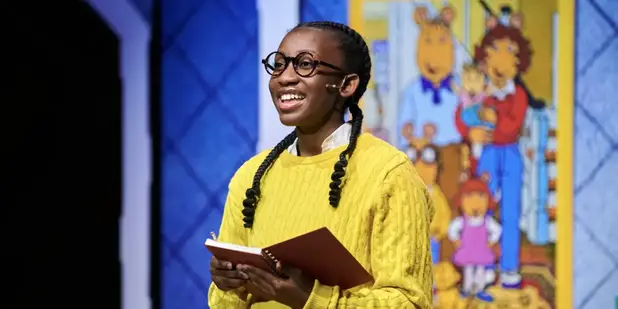
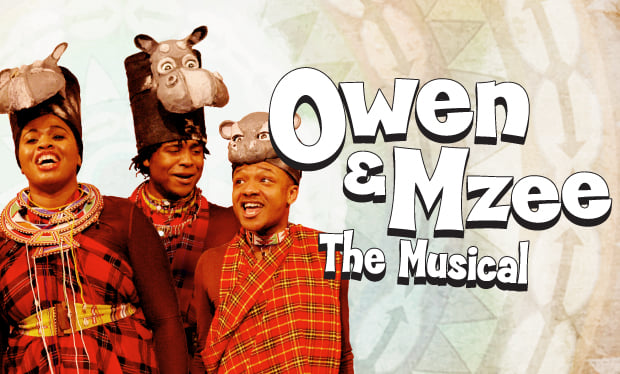
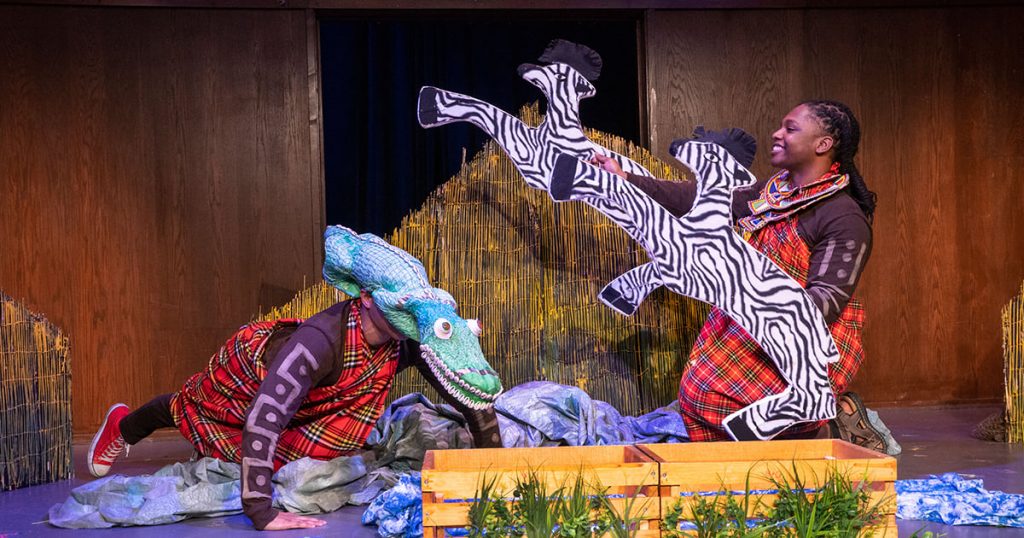
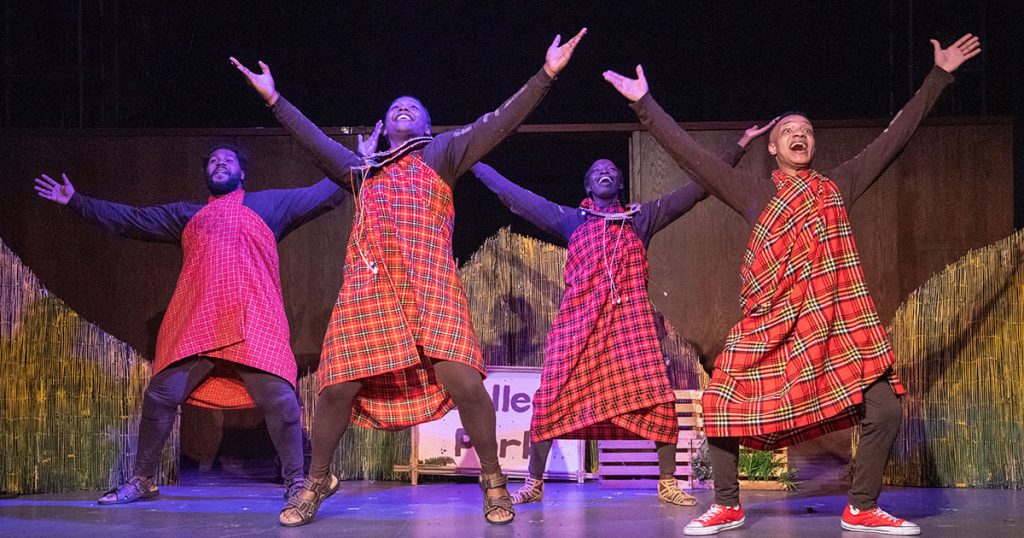
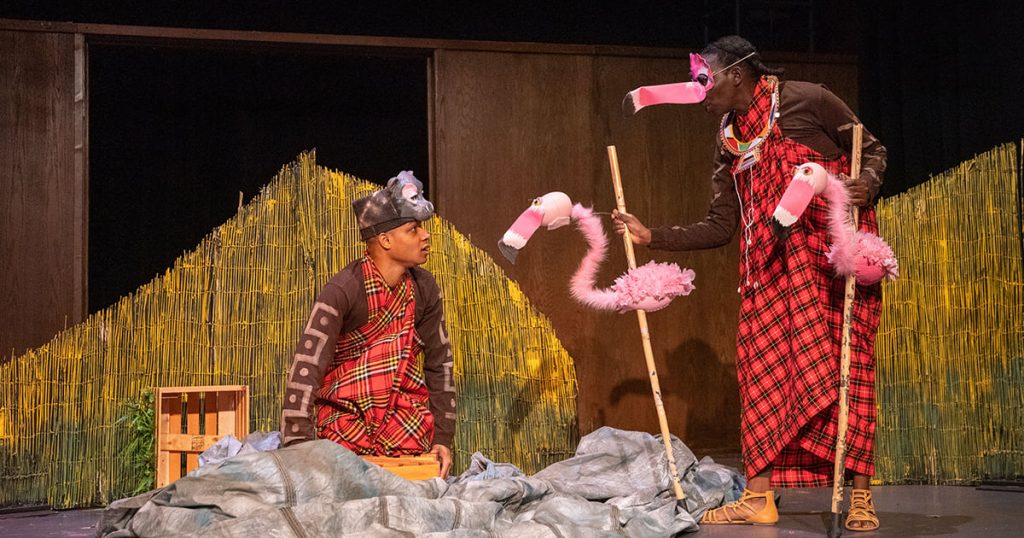
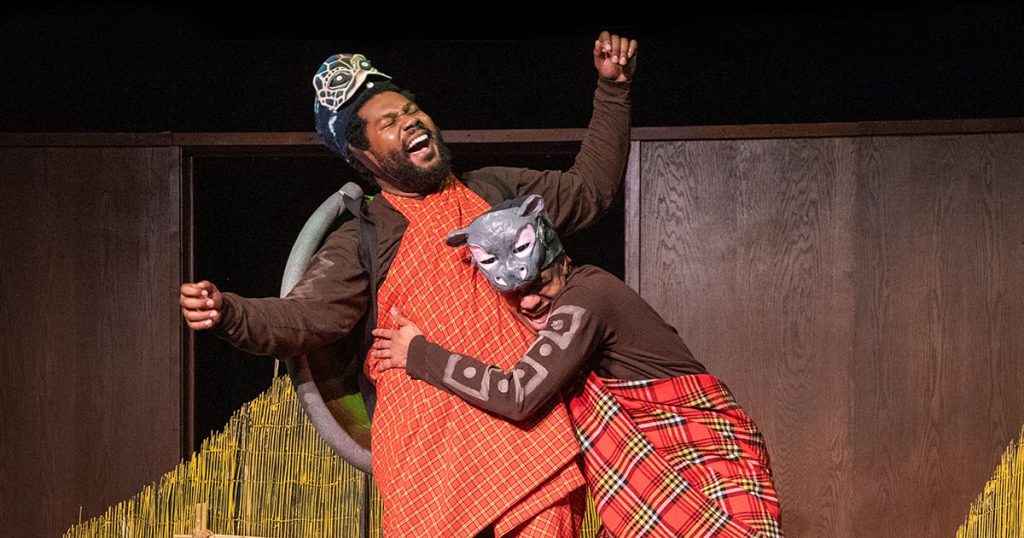
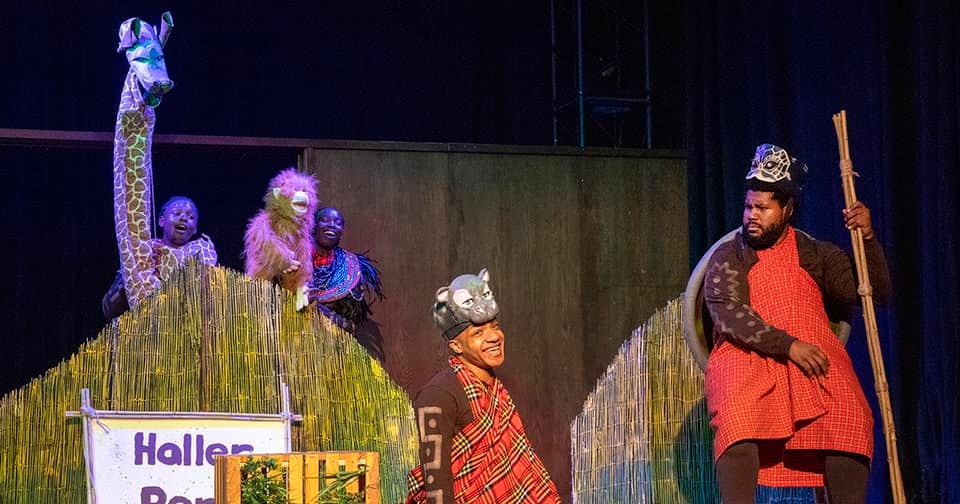
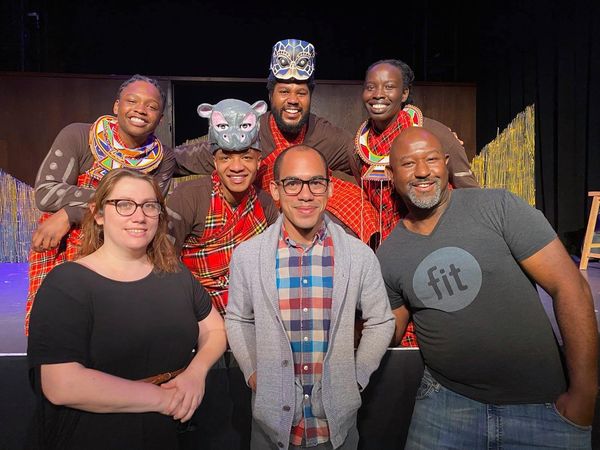

_Photo%20by%20Teresa%20Wood.jpg?ezimgfmt=rs:363x249/rscb23/ng:webp/ngcb23)





